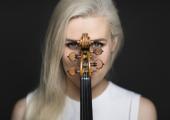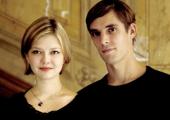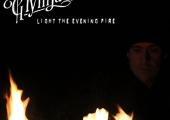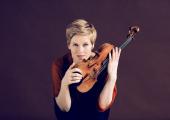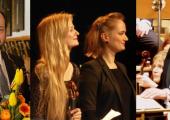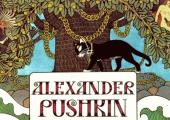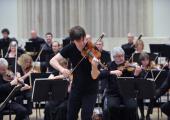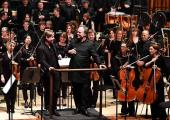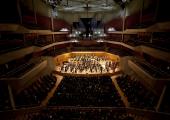There’s a crisis in popular musical vocals. They’ve reached a very naff stasis. After a decade-and-a-half of Cowell hegemony and stars that have risen during the same period, a generation thinks there are only two ways to express emotion. One is melismatic singing (for women – wandering wildly about the higher registers on every syllable, a la Mariah Carey/Whitney Houston), the other is voice-breaking (for men - cracking into a vulnerable falsetto a la Jeff Buckley/Coldplay). It’s all very boring. There are so, so many other ways to express emotion. Just ask Louis Armstrong, Ian Dury, Courtney Barnett and thousands of others, including Greg McDonald.
McDonald, once of indie band The Dawn Parade, then a solo artist, now fronts folk outfit Glymjack (Victorian slang for lantern-bearing street-child guide). He has a voice that quavers in a way that, when the song is up to muster, is wrenching. A comparative reference might be the late Nikki Sudden, but McDonald has his very own style. A decade ago he released a fantastic, underheard singer-songwriter album Stranger at the Door, which he’s struggled to match since, but on Light the Evening Fire he occasionally hits its heights, albeit in a different medium.
For fans of proper folk-rock, in the Fairport/Bellowhead vein, there’s plenty to get their teeth into, with McDonald backed energetically by fiddler Gemma Gayner on songs such as “Bows of London” and “The Sweet Trinity” which have part-song harmonies and a rich, catchy archaic feel. For me, though, McDonald’s poetic, literate, raw, unadorned songwriting is what hits best on the slow-building doomed darkness of “Night Vision”, the socially conscious storytelling of “Hope Point”, and the soulful outsider statement of “Bright Sparks”.
Glymjack sees McDonald back out there working the circuit, his unique singing style and songwriting skill both on fine form. Maybe Glymjack will finally be the making of him and his accomplices. That would be a welcome development.
Overleaf: watch a trailer for Glymjack's album Light the Evening Fire
